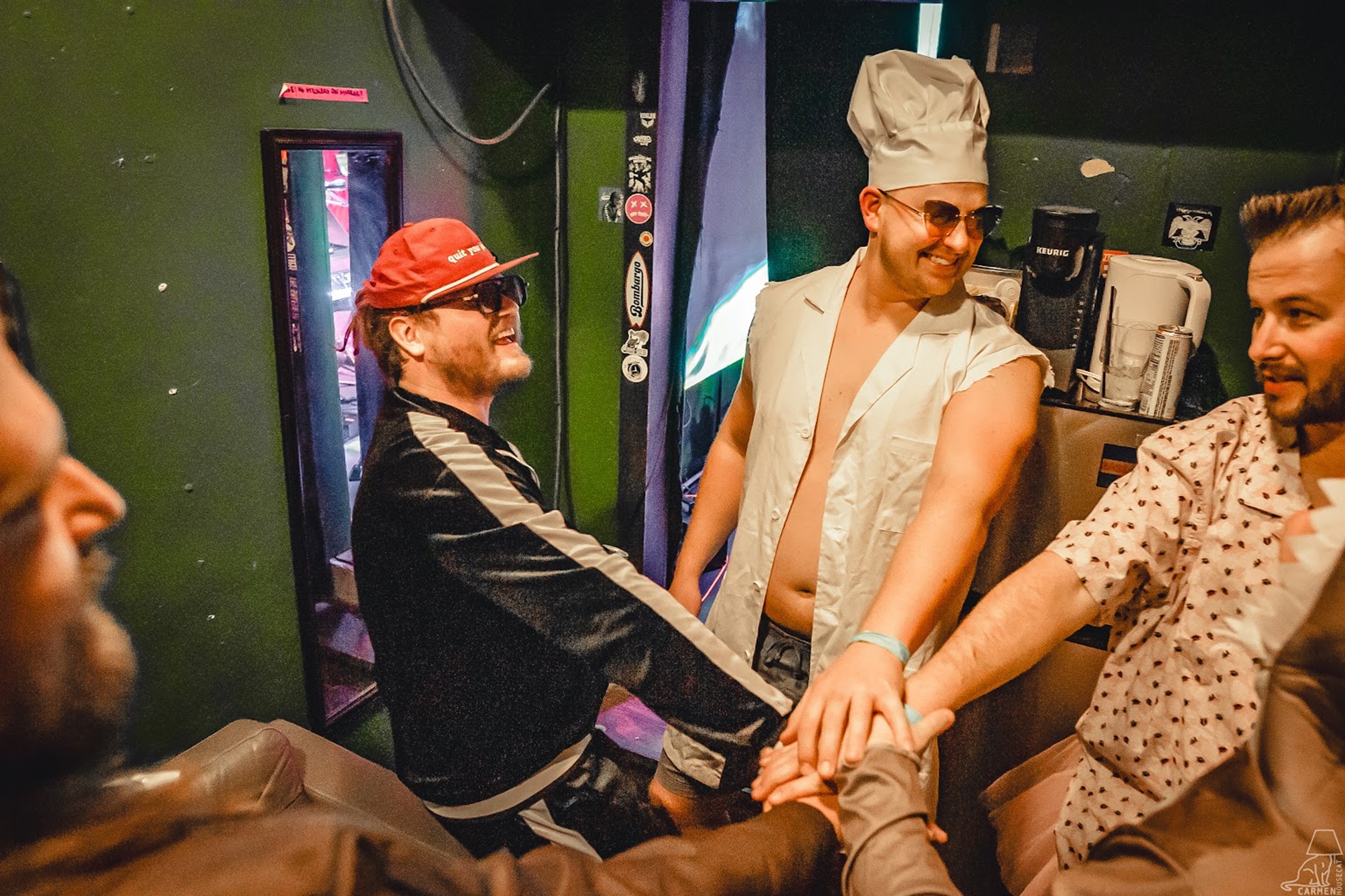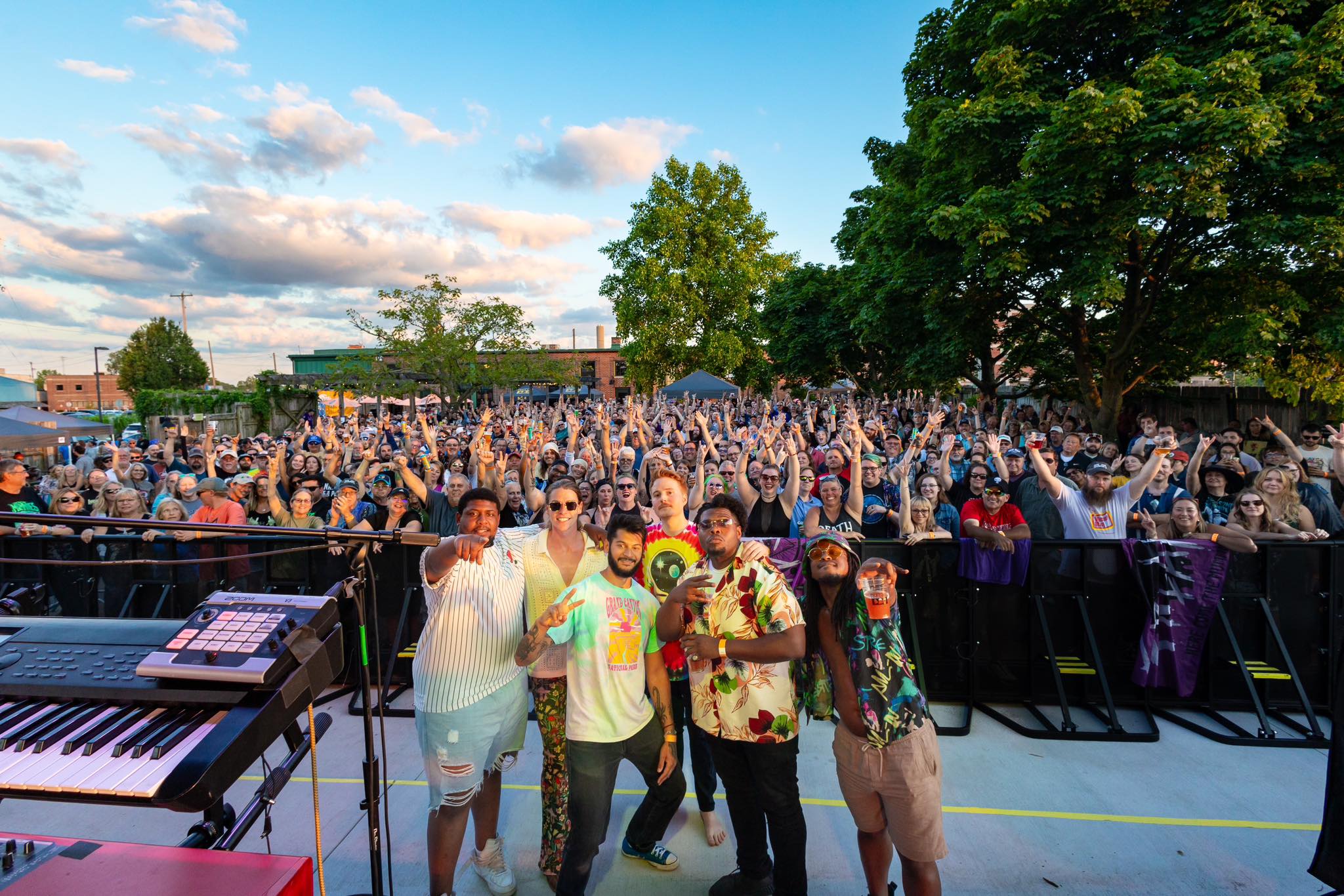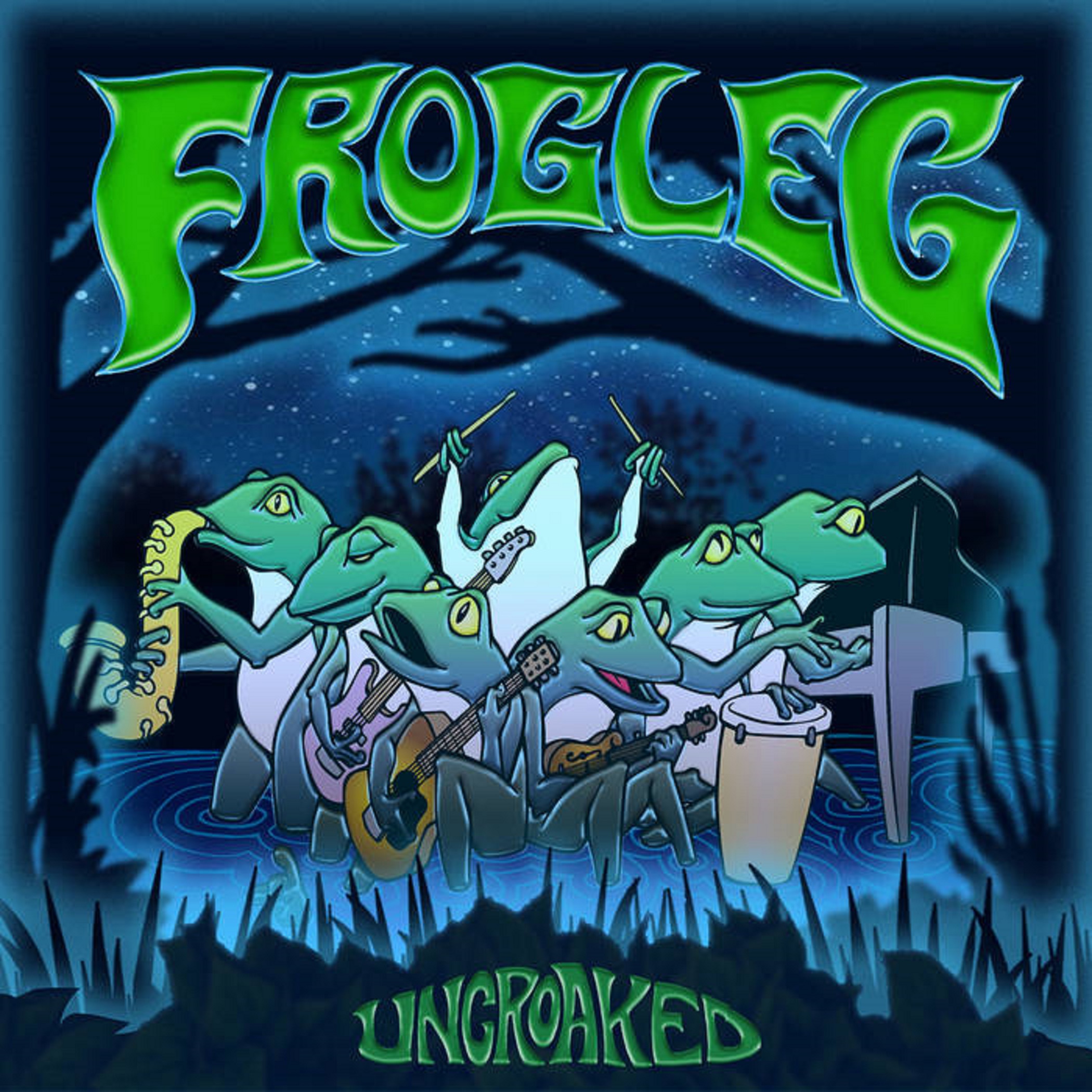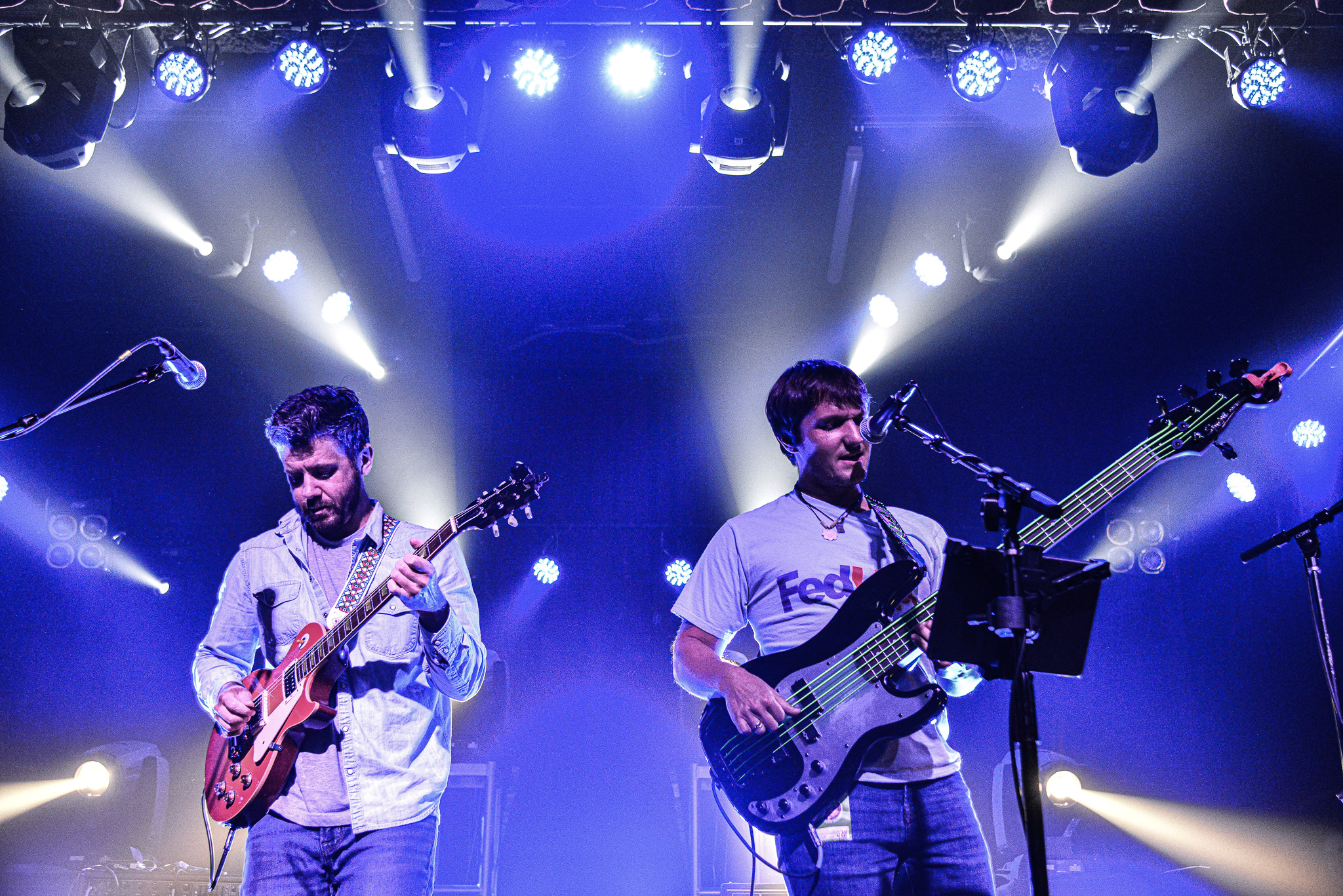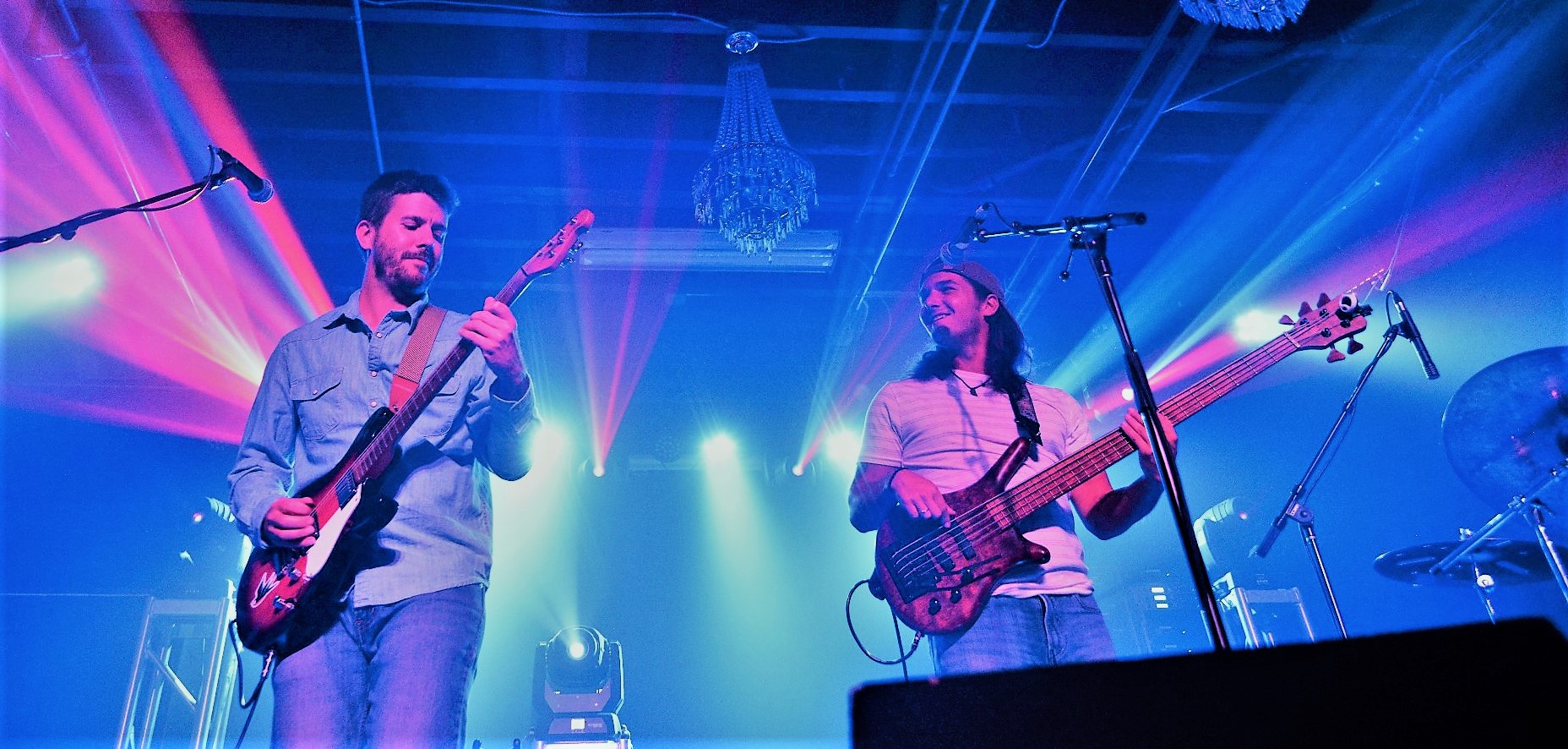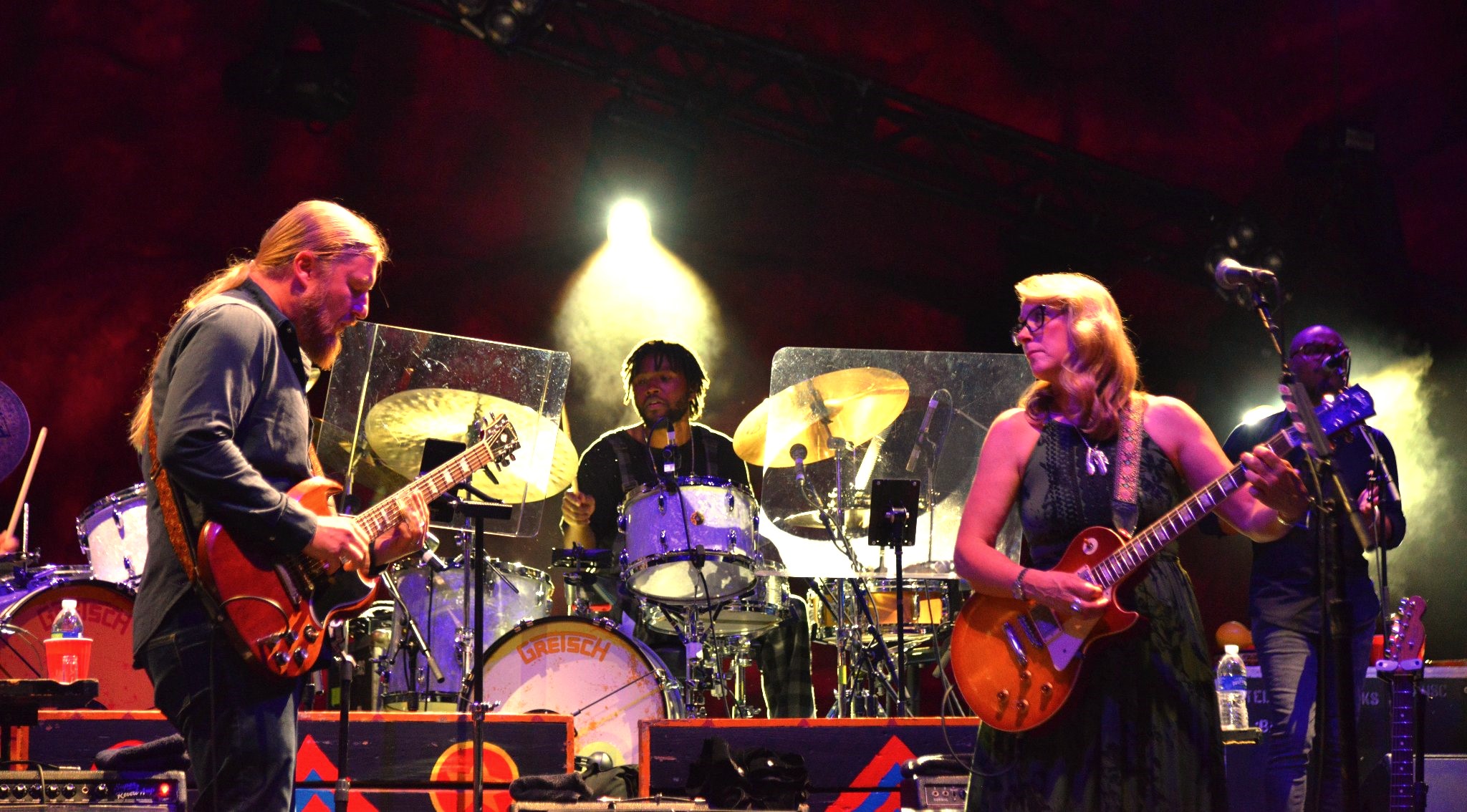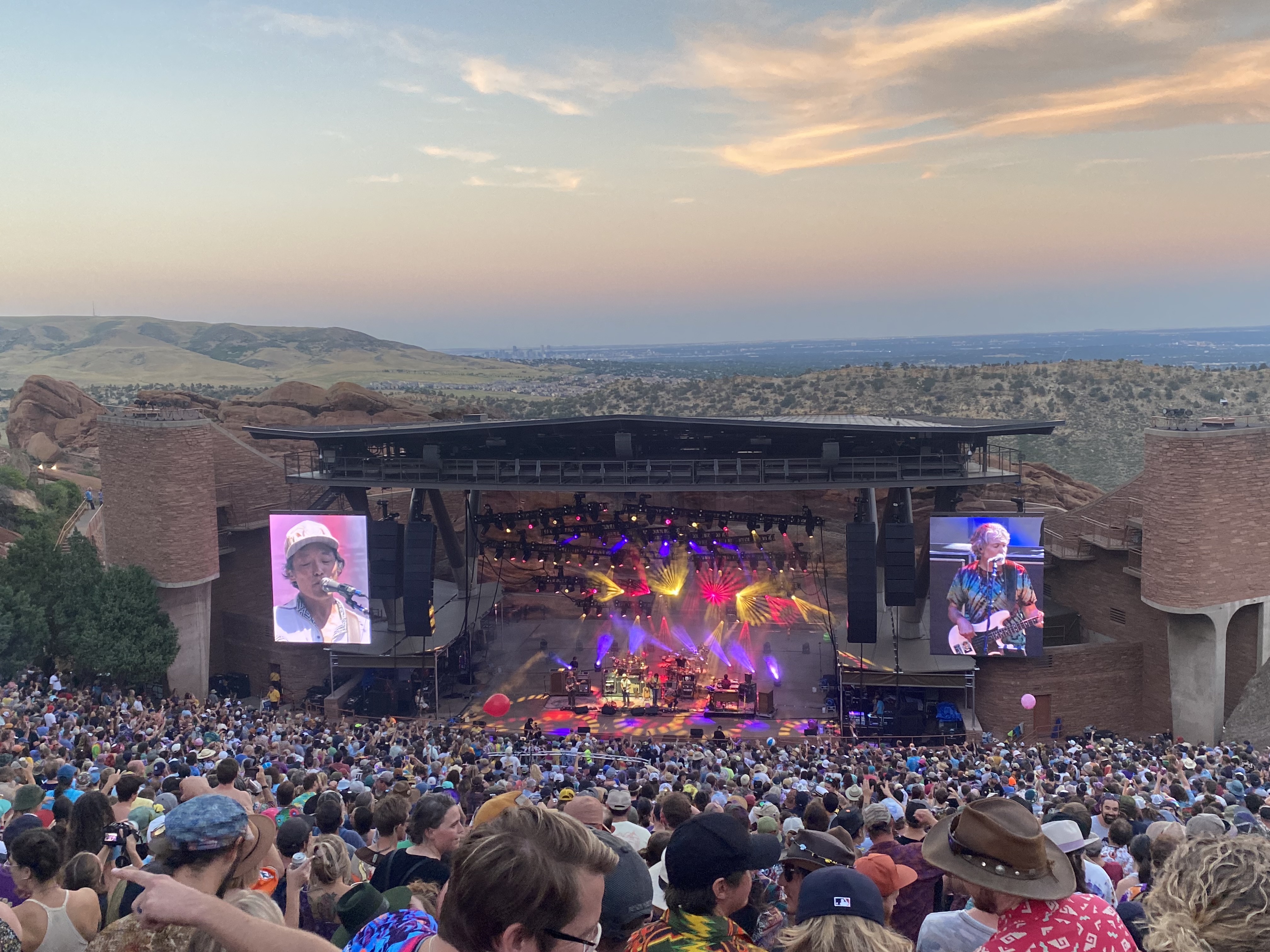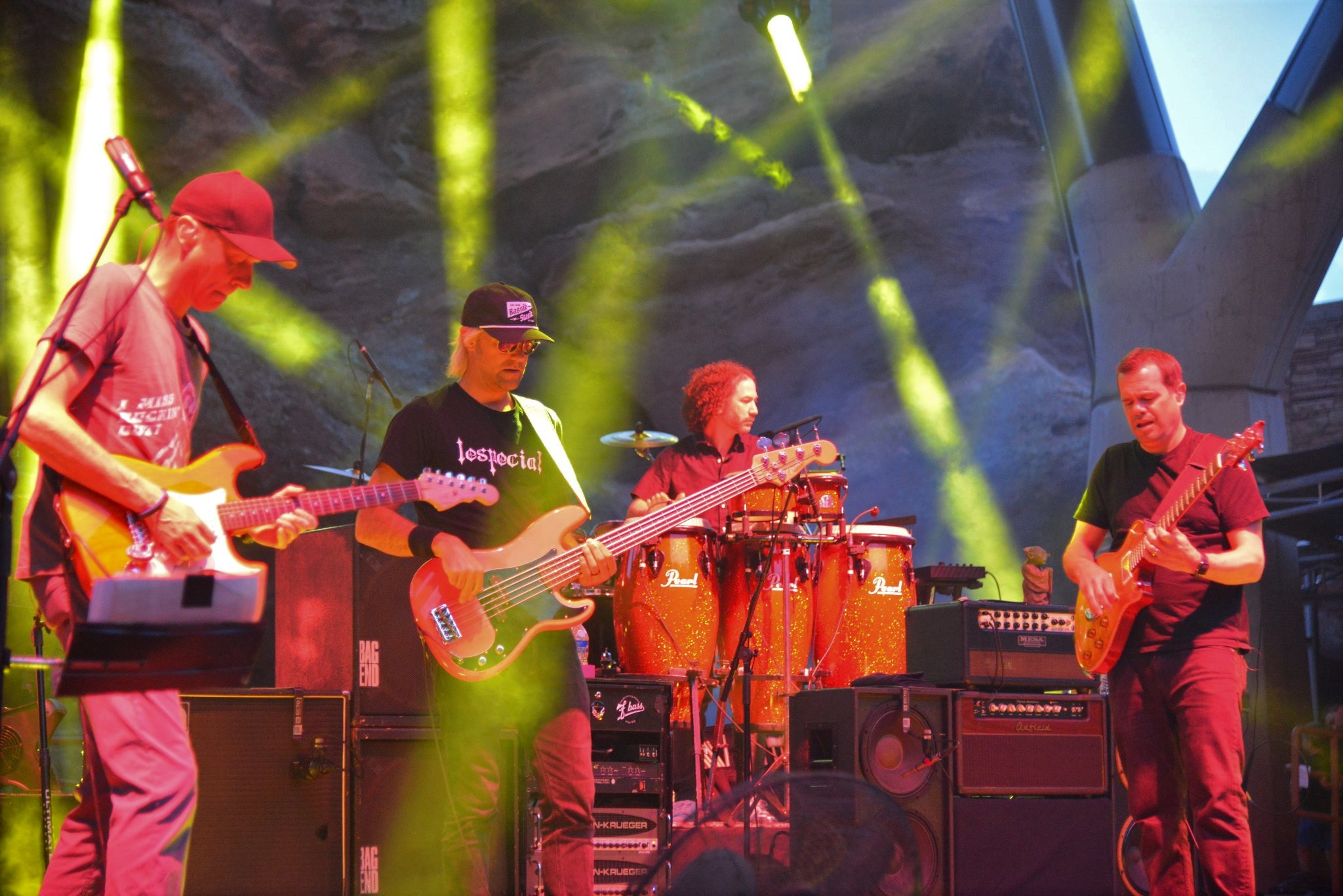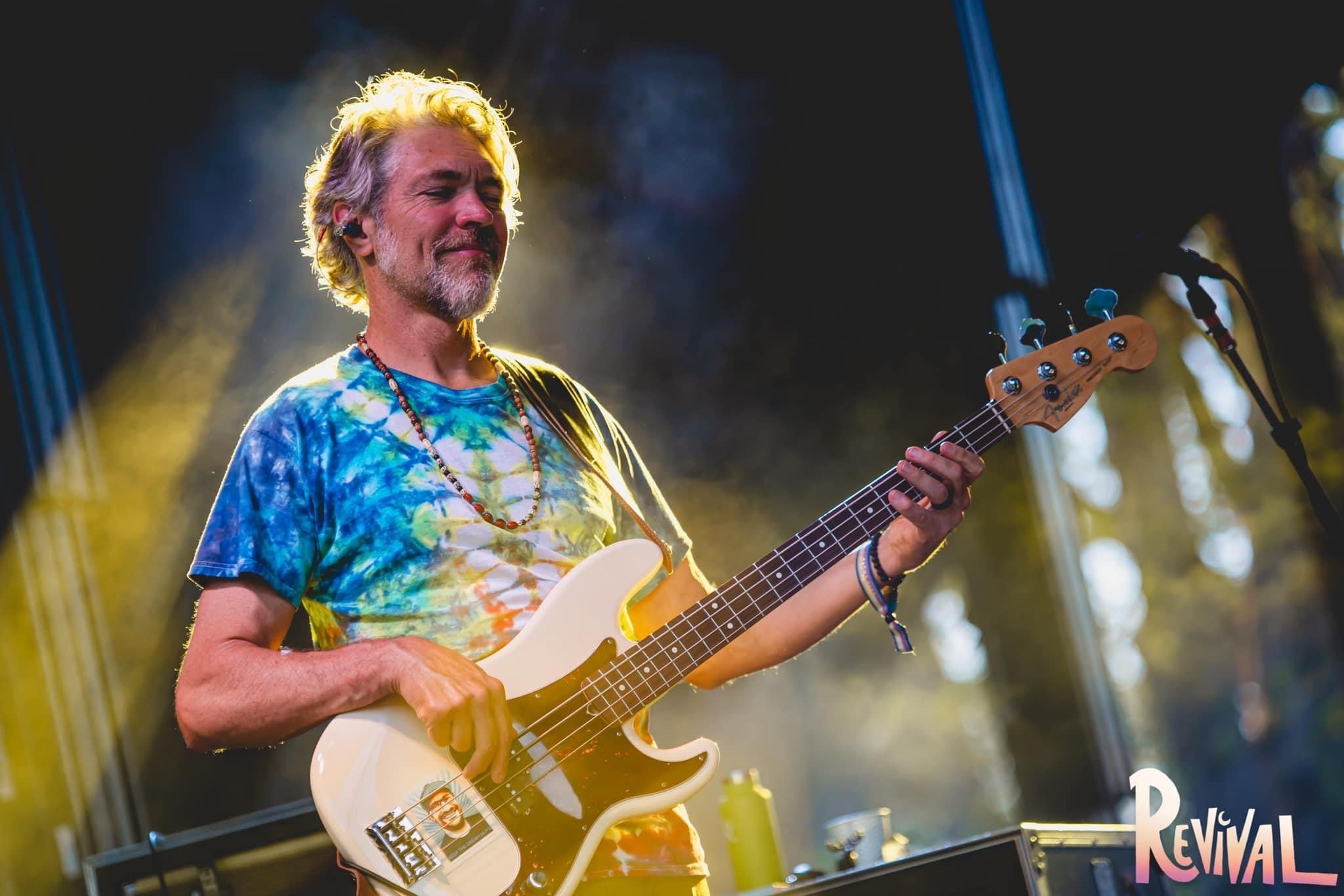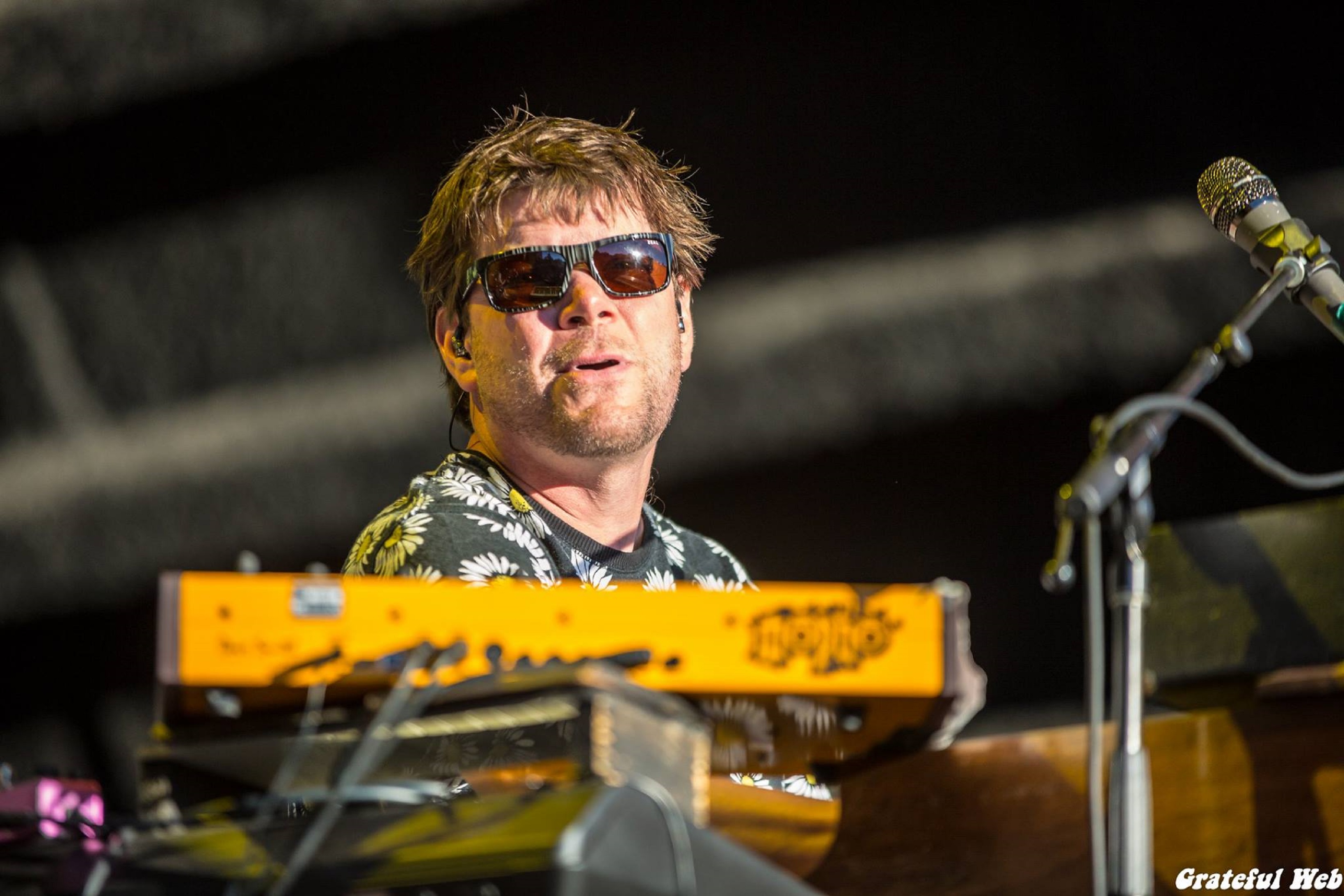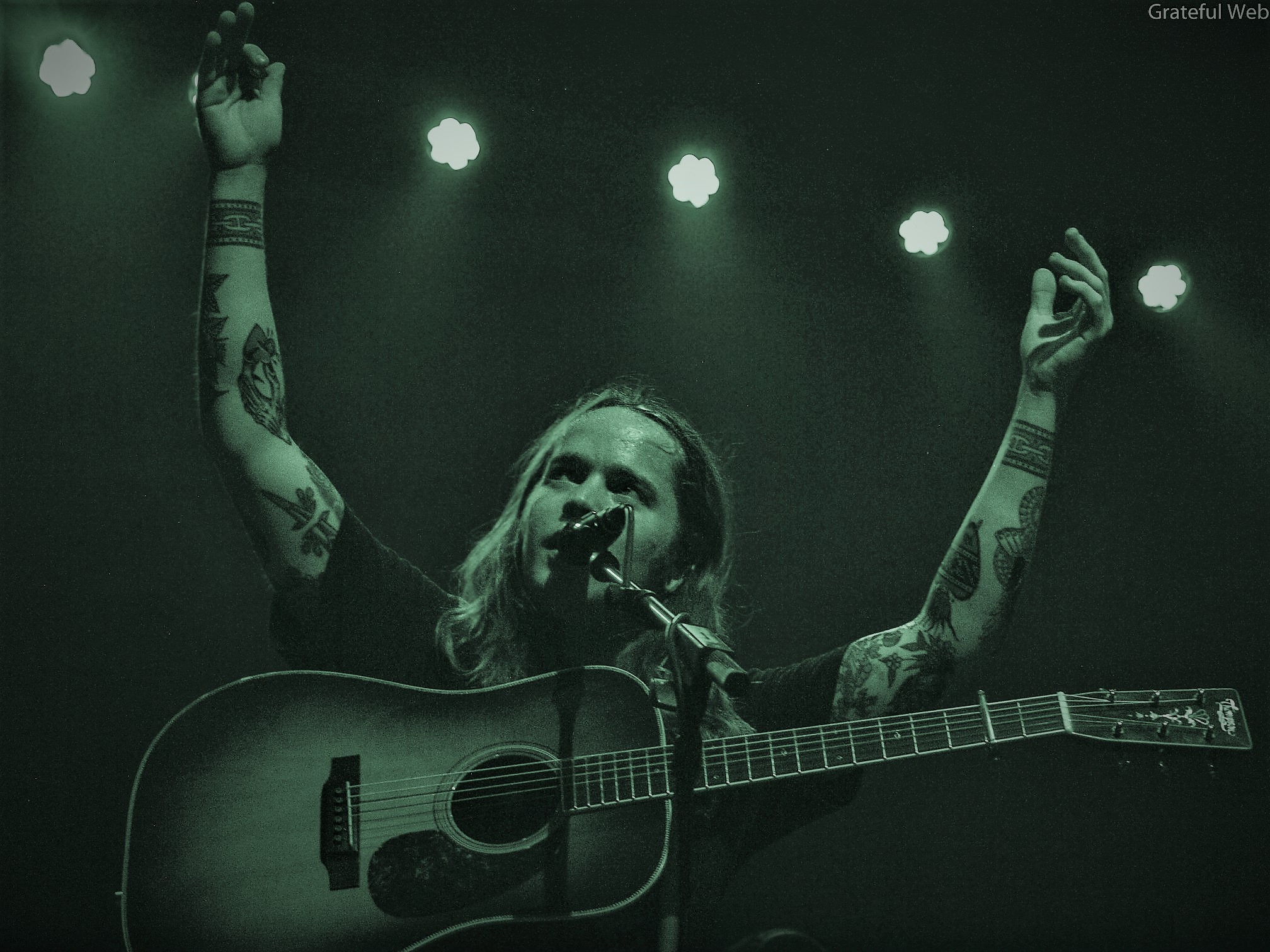Folk-rooted Oregon rockers Fruition have never been ones to shy away from change. What started as an Americana, singer/songwriter project has evolved into a psychedelic grassroots extravaganza, twisting live elements of rock n’ roll and delta-blues into their already well-crafted core sound. The band’s fifth studio album, Watching It All Fall Apart, is an expression of that. With more grit, more grime, and perhaps a small chip on their shoulder, Fruition has evolved into a heavy-swinging soul machine, taking the country by storm through relentless touring and relatable writing. Lead guitarist and vocalist Jay Cobb Anderson was kind enough to sit down with the Grateful Web at this year’s WinterWonderGrass festival in Steamboat Springs, Colorado to discuss the evolution of the band and what direction fans can expect to see in the coming years.
GW: What’s happening guys, my name is Elliot Engebretson here with the Grateful Web, and today I’m joined by Jay Cobb Anderson of Fruition here at the beautiful WinterWonderGrass festival. Jay, how are you doing today my man?
Jay: Doing good man, I’m alive.
GW: I wanted to start by talking about the new album, Watching It All Fall Apart, your fifth studio album. You guys worked with Tucker Martine on this collection, walk me through the recording process and what your mindset was going into this album.
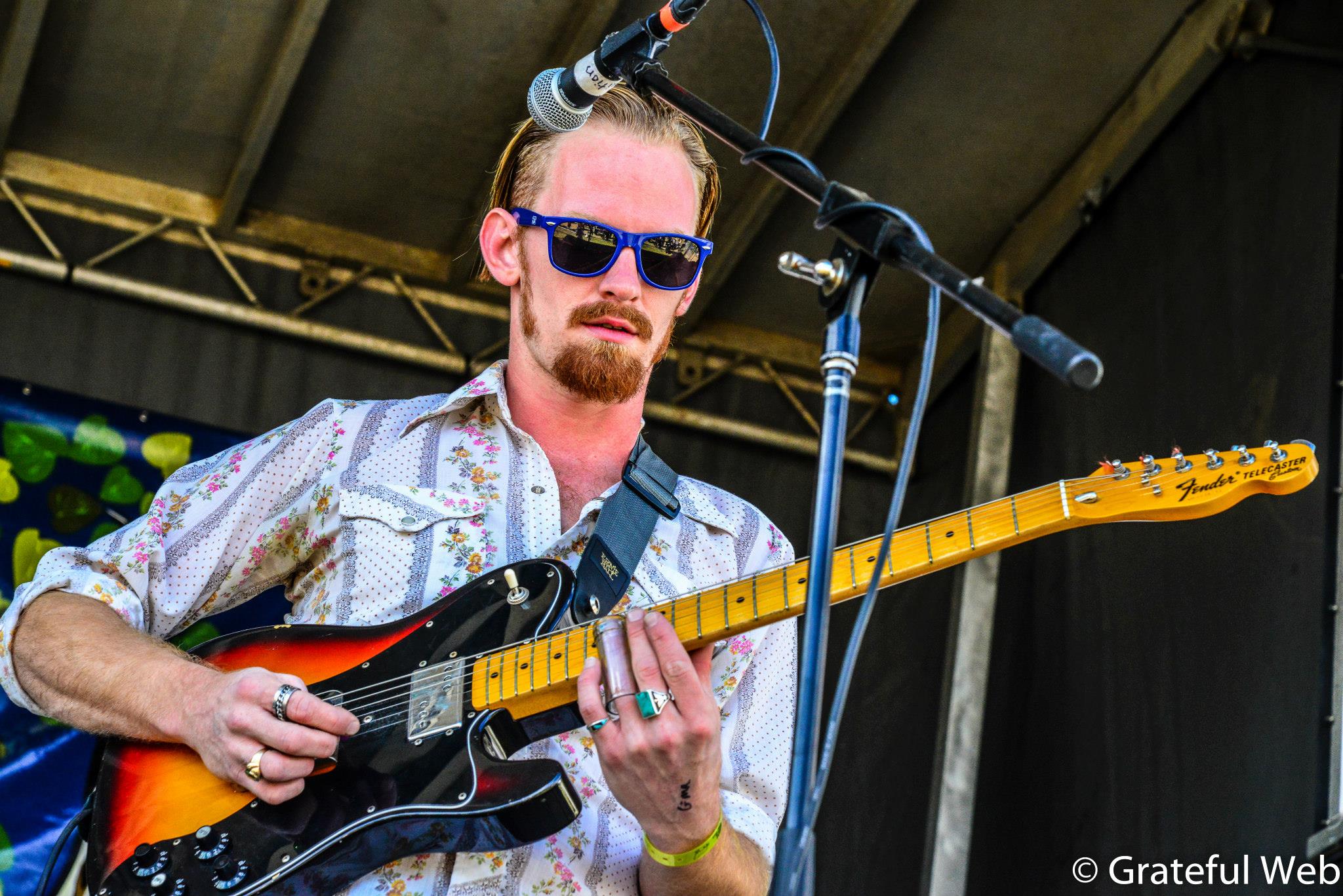
Jay: We always wanted to push a bit farther outside the Americana/Folk genre, even when we were a string band, we’ve always felt that we were a rock band in a string band’s body. With this album it was great to feel comfortable enough to make the type of album we always wanted to make, and Tucker was really the perfect guy for the job, which is funny because we tried to find a couple other producers as a last-second deal, and he heard our music and said he wanted to a part of it, and we had heard his production before and knew he was the real deal.
It was a really great process, there are three songwriters in Fruition: Mimi Naja, Kellen Asebroek and myself, and we sort of picked the songs that we had written that we thought were the best and thought would work best with the vibe of Fruition, and then you just sort of throw it all out on the table. After that, you can narrow it down, like I think when we started we had almost 50 songs. So we narrowed that down to around 20, and then from there got a little more strategic with it. You know you start playing some of the songs for your friends and just listening more. Once we had it down to the core, we actually started demoing them in the basement where Tyler Thompson and I used to live in Portland. So we would just record them, with a little bit less care since it was just a demo, and we would send them to Tucker, and he would listen to them.
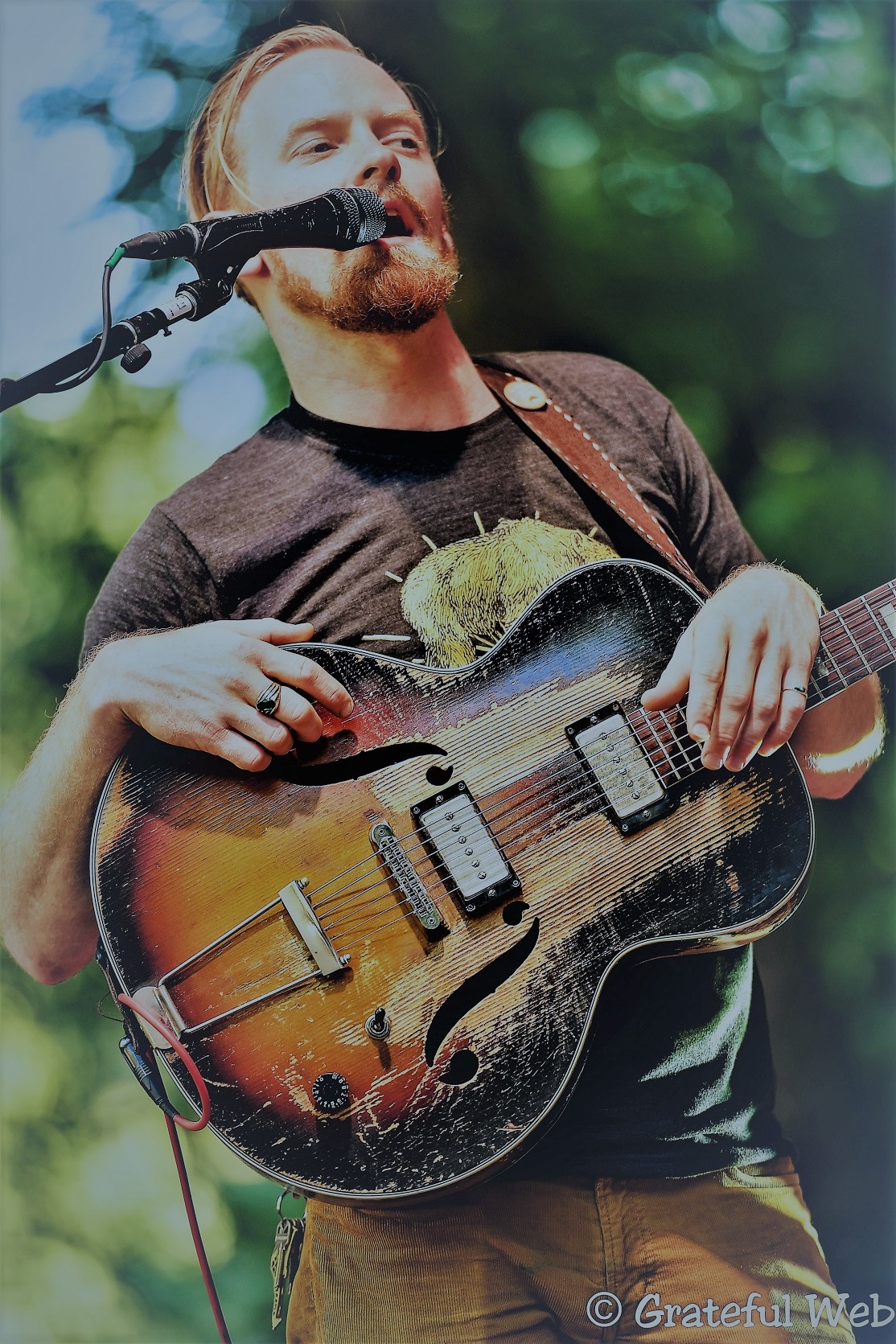
So, he came in for a practice and listened to us play these songs, which we had never played live before, and he helped us select the ones we thought were best. We ended up recording fourteen tracks total, ten that made it to the album and four that we are going to release on an EP. It’s incredible working with Tucker because he’s been doing this for so long he knows how to weave everything together to make it sound like one type. Plus, his personality matches ours, we’re always just joking around and having fun so vibed with him really well.
GW: Absolutely, and you can really hear the evolution of Fruition the first listen through. It still has that Americana, folk vibe but there is also some rockers, some soulful tunes and really some sadness. A little more edge there.
Jay: Exactly, it’s still Fruition, but that’s what we were shooting for, and Tucker really helped us with that.
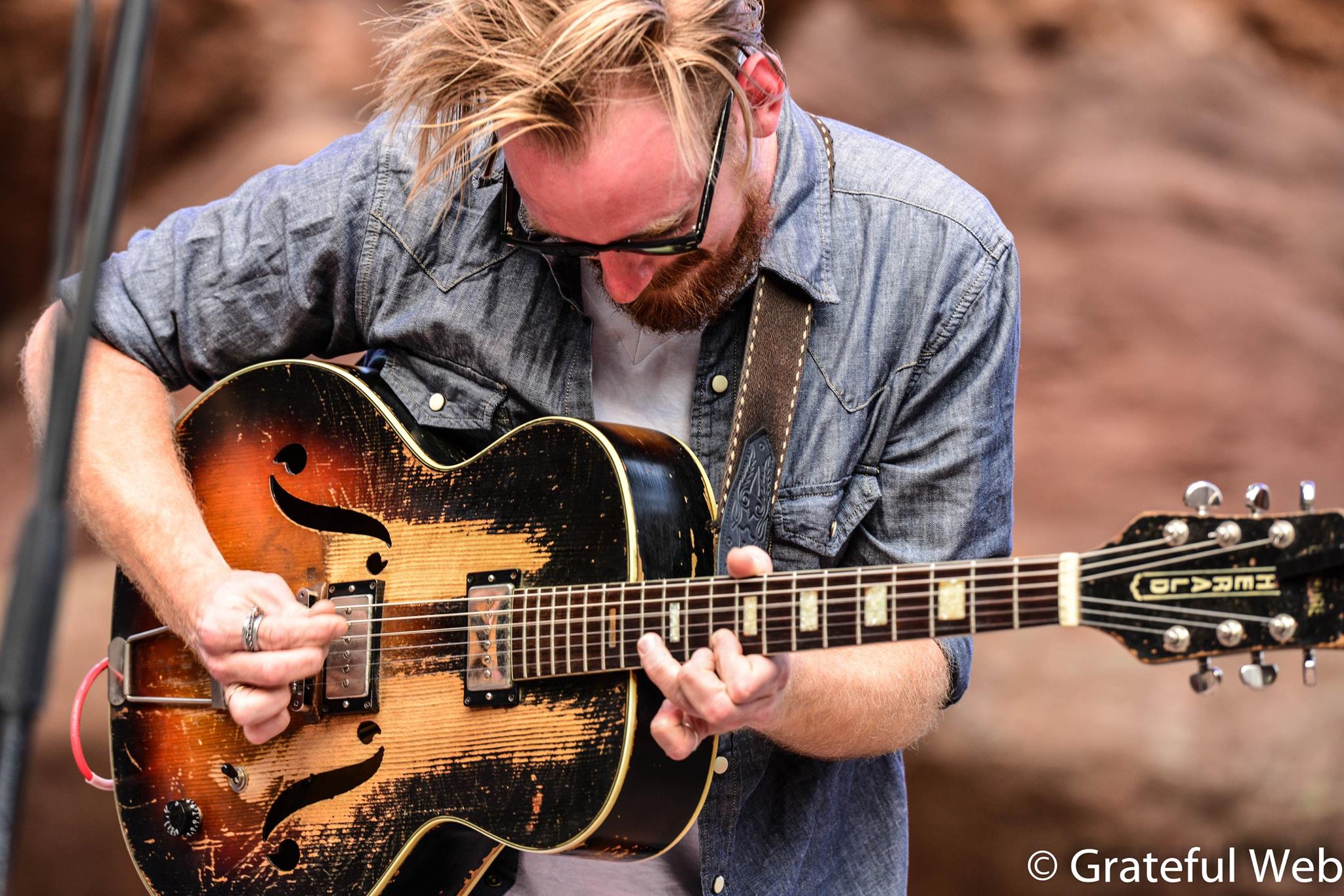
GW: You guys, like many jam and bluegrass bands, thrive when on stage. What’s it like trying to capture that live energy you guys bring on stage within the studio?
Jay: I think it’s always been kind of challenging for us to translate what we do live into a record. The way I’ve always viewed the studio is like an instrument itself. Ever since the Beatles, it’s been a place where you can do things that you cannot do live, so with this album particularly there’s a few tracks we did almost completely live, so you get that live vibe. Then there are some tracks where we didn’t do that, but we’re using the studio as an instrument in a way to where it still sounds alive and captures the essence of what we do.
What’s been interesting about this record, is a lot of these tracks we hadn’t played out all the way until we recorded the record. It was interesting recording them and getting to a point of like, “Okay, how are we going to do this live?” So, we just started going for it, and it’s been really fun because some of the songs we thought might be difficult to recreate from the studio have found their own way to be realized as a live song. More often than not, our mentality whether recording or playing live is, the song is the most important thing. The more that you realize that, and the more than you can step outside your personal opinions on what the song should be, and just do what’s right for the song and not what your ego thinks, that’s when the songs really grow.
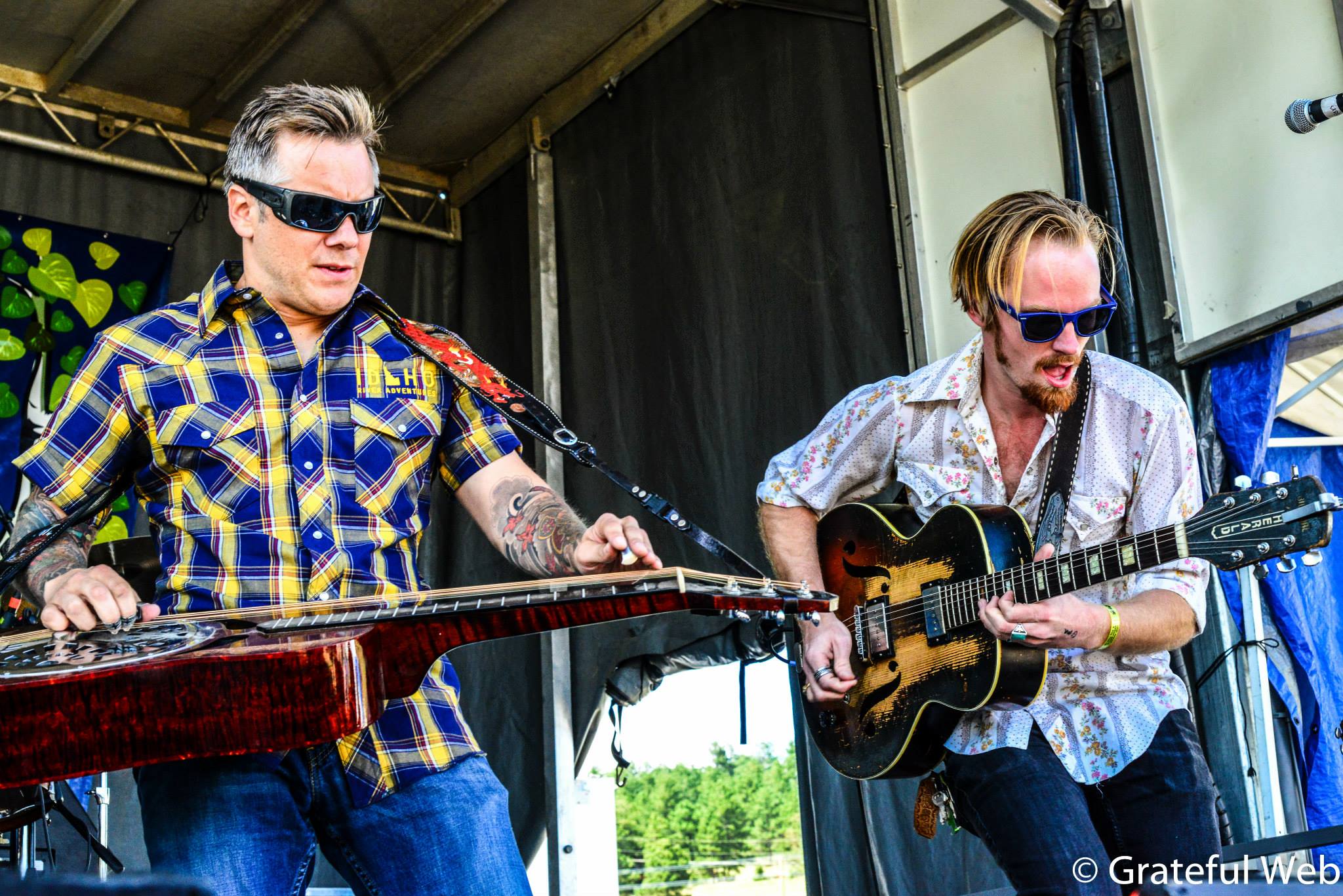
GW: You guys have been touring like crazy here these past couple years, playing over 100 shows a year. How do you balance in the tour life, especially now that you guys are getting bigger, is it still a shock being on the road all the time or is that something you love?
Jay: It something we’ve done for so long, like when we first started Fruition and still to this day, we just wanted to play. We just went out and started doing it on the streets, and we had that lust of really going for it. We’re all just so used to it now, and there have been hard times no doubt, especially start out when it’s like okay we’re broke as fuck, we don’t always know where we are going to sleep at night and not making any money. In the beginning, we used to rent one bedroom in this three-bedroom house, and we would rotate on who got to sleep in the bed. We were splitting like $300 a month between four people, so we’re used to roughing it. So, if you do that enough and get used to it and start to get to a point where you can live more comfortably, and we can have our own hotels rooms, and not just one hotel room where you are sneaking in and trying not to wake each other up. It’s just a lot easier as times goes on and it feels really, really nice and rewarding to have that.
GW: Speaking of growing up and evolving, you guys are going on tour with Jack Johnson. You’re going to be exposed to a whole new audience, people who have probably never heard of Fruition. How did this tour come to be, and what does it mean for the band?
Jay: It means another step up. That’s the thing about this day and age, if you want to be a successful band you basically just have to go out and do it over and over again. Play the show, play the after-party. Our manager, Josh Nicotra, he’s also the general manager of Brushfire Records which is Jack Johnson’s label. We met him playing on the streets at south by southwest years ago, so we’ve never met Jack but Josh has always worked with us and tried to get us into things like that. The timing has always been a little bit off, but I think it’s perfect for where we are at right now.
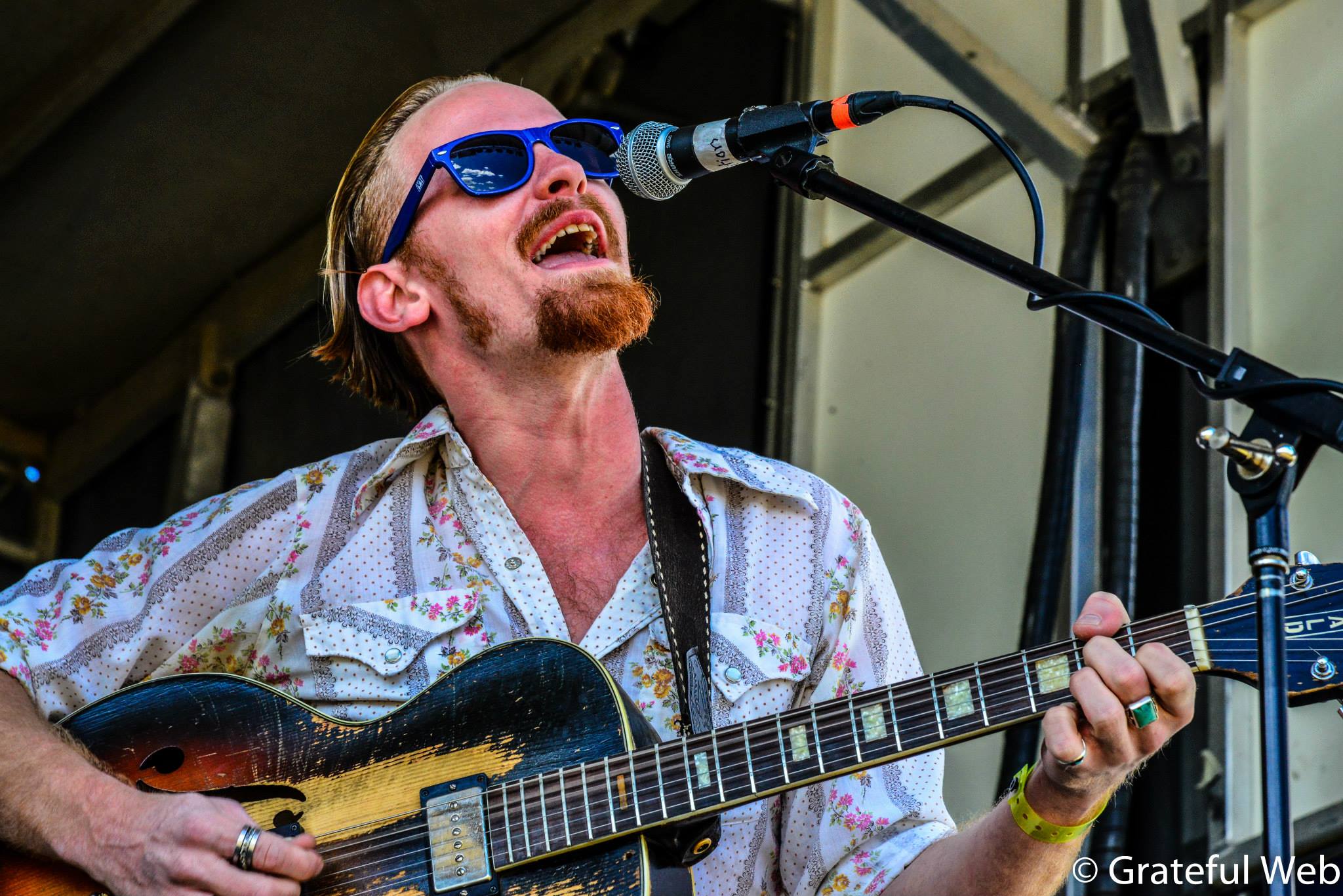
Really all we want, and all I think any real touring artist wants, is to be able to make a career out of it and live like a normal person. The dreams of getting rich and successful, they are there, but it seems like bullshit that used to happen back in the day. We all just want to live comfortably and also be able to make as much music as we want to make. So hopefully that’s what happens when you go on tour with a guy like Jack Johnson, those sort of doors start to open.
GW: I’ve always thought that the jam world and the bluegrass world has the most dedicated fan base in all of music but have that exposure to more of an alternative crowd where it’s more family oriented will be so huge for you guys.
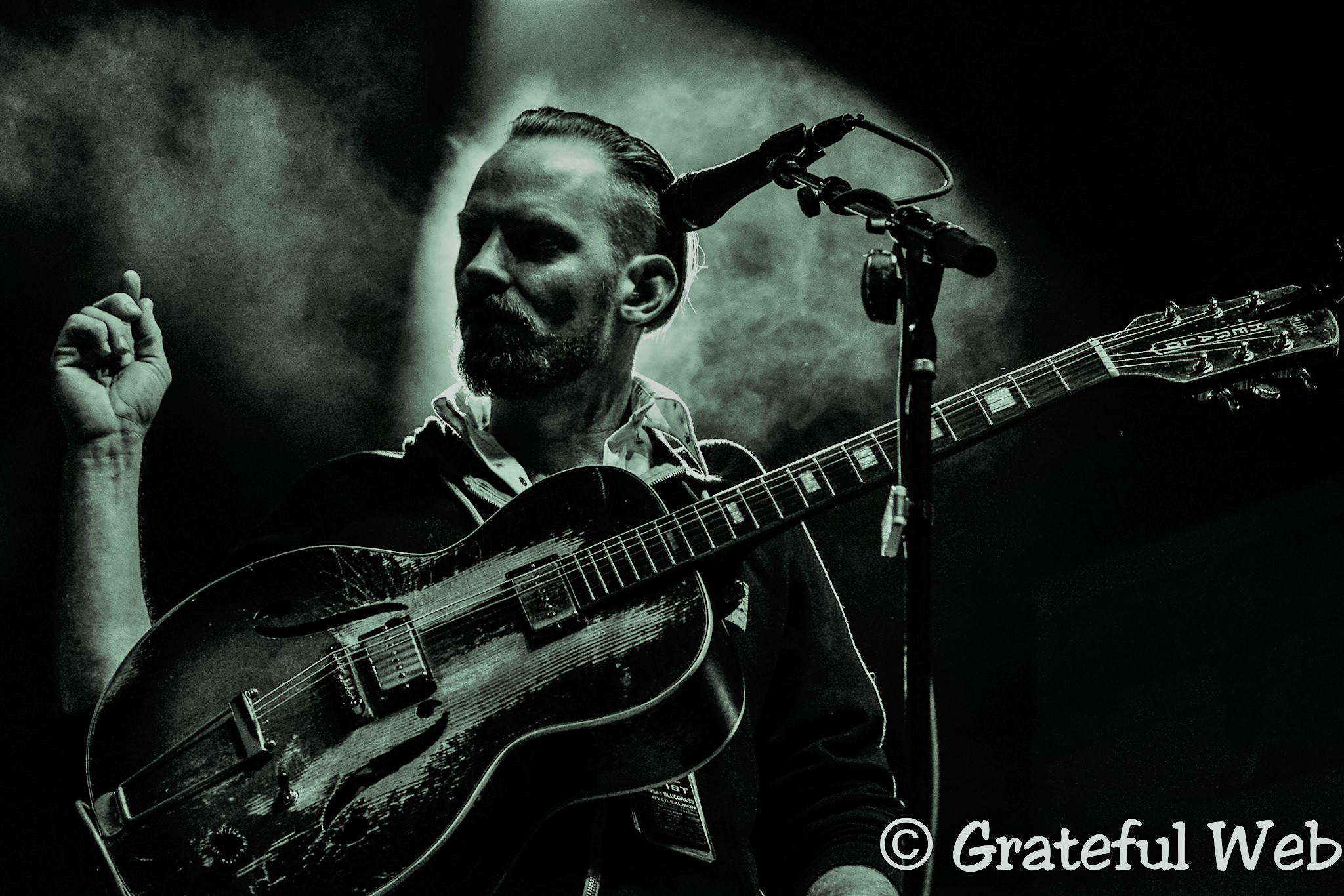
Jay: Right! And we don’t care about who connects with the music; we couldn’t give a shit if it’s mom, dad, grandma or their kids. For us, if you can dig what we’re doing then jump on board.
GW: Let’s talk about where we are today, beautiful Steamboat Springs for WinterWondergrass festival. This has become a huge deal, what does it mean for the bluegrass community and what does it mean for you guys to be here?
Jay: These festivals in Colorado are so amazing. The passion and the lust that the people in Colorado have for music is incredible. To be able to throw a festival in the middle of winter, and I’m sure every artist says this, but it seems insane. Only in Colorado could you pull this off and have people love it. Also, Scott, the guy who throws the event, he’s just such a sweet, kind and compassionate person. He doesn’t do it to get rich or gain notoriety; he’s trying to build community awareness for all sorts of things. We’ve always love working with him, and he’s been a big part of our success at least in Colorado.
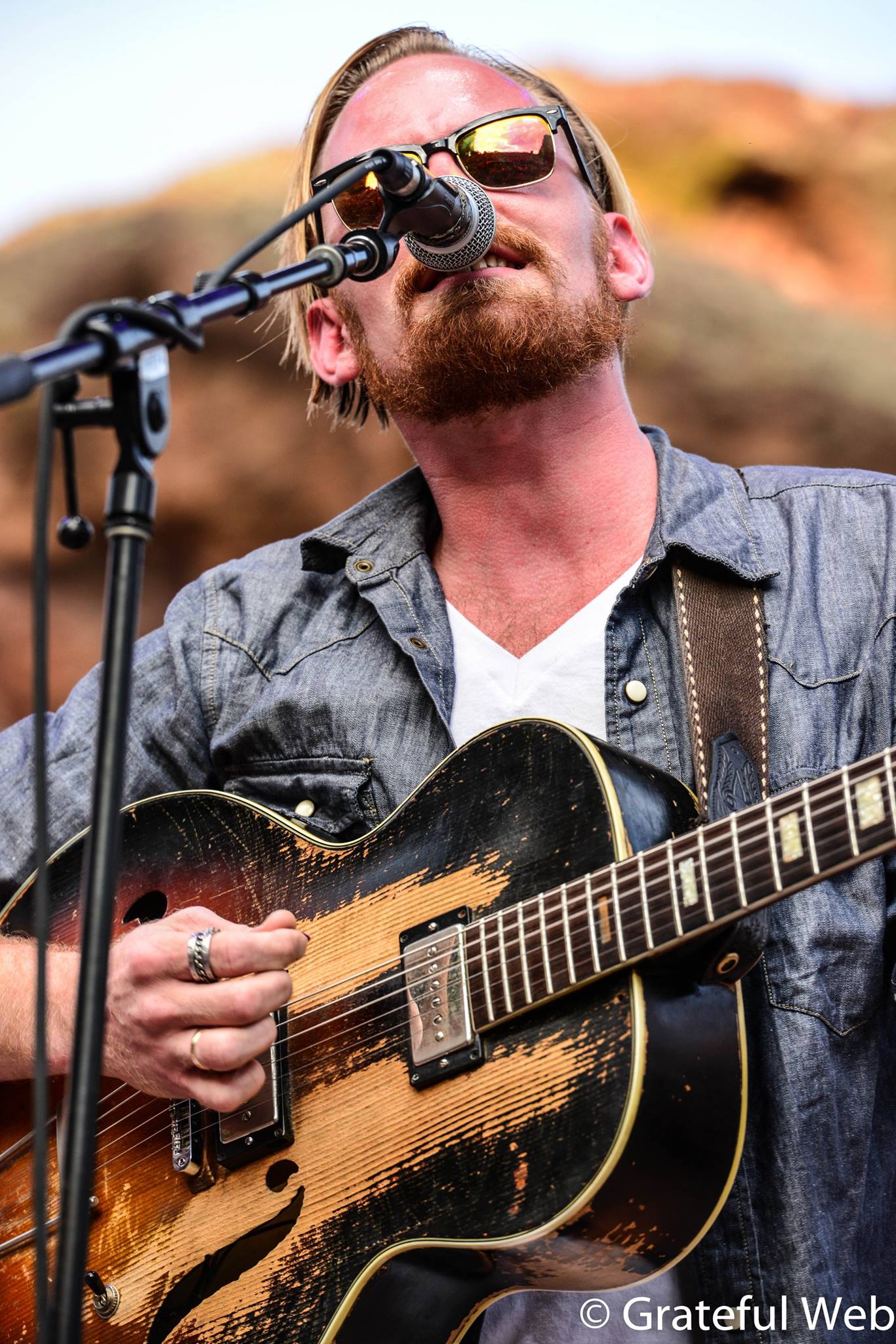
It feels great to be a part of it, and it’s like family, it’s like a big family reunion every time you come to it. When you’re on the road all the time and playing these festivals, there’s a comradery that you build with these bands that you see all the time. All these bands man, Greensky, California Honeydrops, the Lil Smokies, all these guys when you get to come out and reunite at a place like this it’s just really beautiful.
GW: I’ve heard that from quite a few bands, how this event just feels like family.
Jay: Absolutely, and also what’s cool about it is like, at some festivals security can be on top of you and regulating everything, and they do that here too, but it’s just different. Like you’ll walk up to a security guard here, and they’ll be like, “you guys killed it yesterday!” and walk right though. They know you’re doing your thing, and everyone is really relaxed.
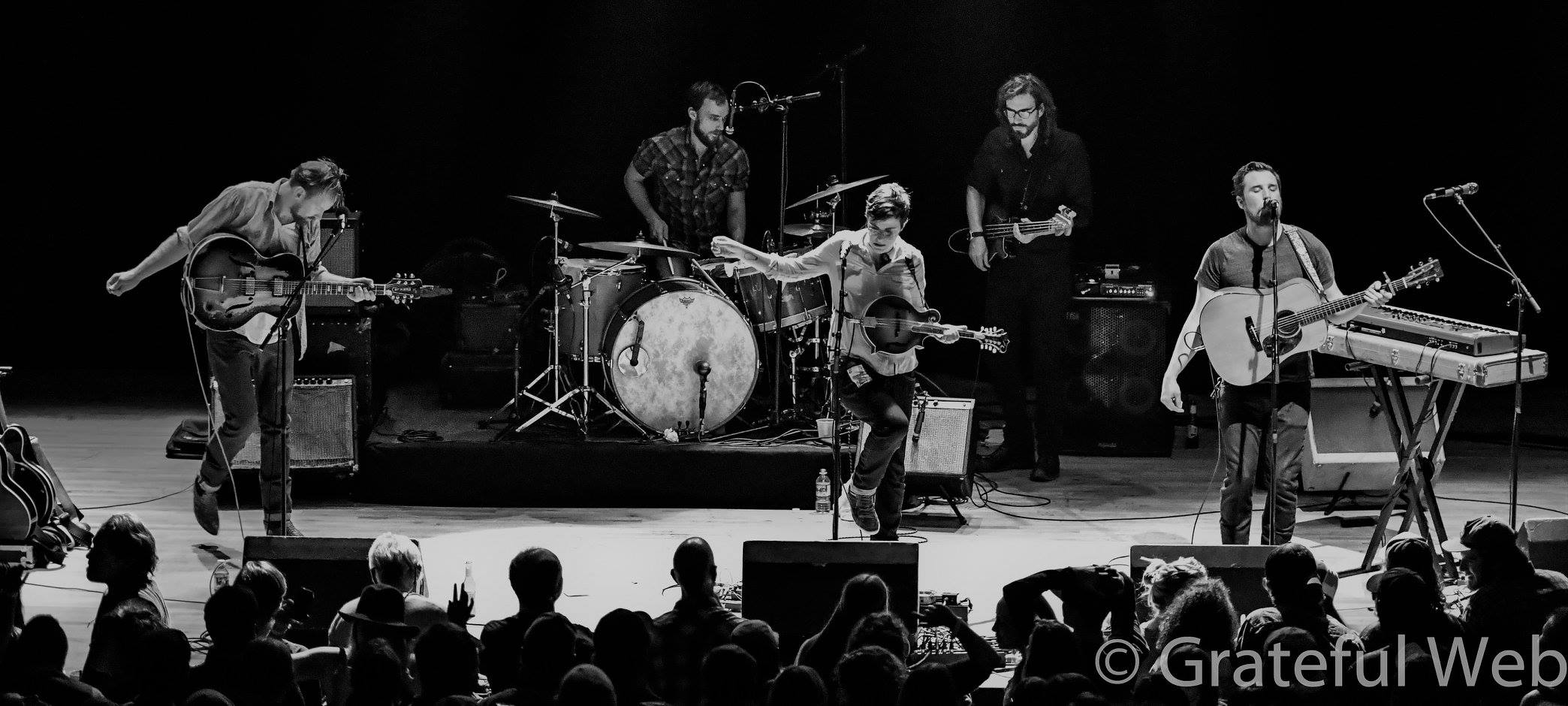
GW: Right on man, and what are some of the pros and cons of playing outside at a music festival where it could potentially snow a foot during the course of the night?
Jay: There’s obvious cons (laughs) like I said, I mean tuning can be insane. No matter how much heat you pump out of the heaters, the issue is you get wind and stuff too. There were times last night where in the middle of one song I would have to stop and tune like four times. So it can be a bit stressful sometimes, but that’s also a pro too because you get to a point where you can almost let go and just say oh well, let’s try to rise above it. So, there’s a pro to that. Another con would be if it snows too much it can get on your pedal boards and stuff, and that can be thousands of dollars at time. Although Scotty has always been really good about that stuff and taking care of the artists.
The biggest pro of the whole thing is that, when you’re out there on that stage, and you can’t feel your fingers, what motivates you to rise above everything is the audience. There’s a vibe at these festivals that you can’t get at other festivals because people know, they see you up there struggling through, and they are grateful for that, so it just makes for this instant union vibe. The vibe between the artist and the crowd is just incredible. Like they know what we are going through, and we know what they are going through, and we are just like you guys are fucking insane. So, everything, all the worries, and stuff just drift away when you see that crowd and they are pumped up, that’s why you do it.
GW: Final thoughts here, I know you have to get going. 2017/2018 has been a huge year for you guys, what’s next on the board for Fruition?
Jay: Well the Jack shows are coming up which are huge, but after that man just keep going. We’re working with a record company now, LoHi Records, and it’s such a great thing there. So hopefully just putting out more music, playing more shows and keep the train running man!
GW: Well hey Jay, thank you so much for your time today, and we will see you on the road.
Jay: Thanks guys!






